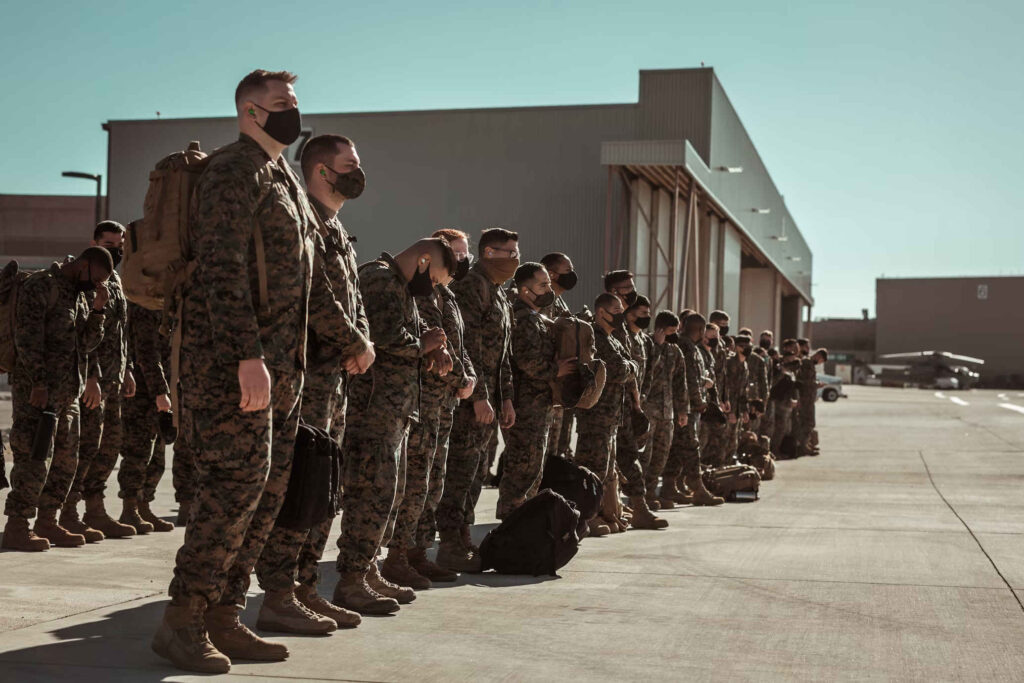
Wherein a writer for the CIA-backed Washington Post muses on prospects for US success in World War III.
After killing at least 3.6 million people in its so-called “War on Terror,” US armed forces are regrouping to combat adversaries capable of mounting a resistance.
In a hagiographic article entitled “Preparing for a China war, the Marines are retooling how they’ll fight,” ruling class stenographer Ellen Nakashima blithely considers the prospect of fighting a war against a nuclear-armed country of 1.4 billion people. The piece, appearing in The Washington Post, details the US Marine Corps’ efforts to adapt to what she appears to believe is an inevitable, and desirable, conflict with China.
“The Marines are striving to adapt to a maritime fight that could play out across thousands of miles of islands and coastline in Asia,” writes Nakashima, admitting the armed service has devoted the last 20 years to fighting less capable forces in the Middle East. “Instead of launching traditional amphibious assaults… nimbler groups are intended as an enabler for a larger joint force.”
“Their role is to gather intelligence and target data and share it quickly — as well as occasionally sink ships with medium-range missiles,” it is explained, “to help the Pacific Fleet and Air Force repel aggression against the United States and allies and partners like Taiwan, Japan and the Philippines.”
The country she imagines launching this aggression has not been at war since 1979, while the United States has deployed its military forces almost 400 times during its short history.
“New regiments are envisioned as one piece of a broader strategy to synchronize the operations of US soldiers, sailors, Marines and airmen, and in turn with the militaries of allies and partners in the Pacific,” the piece continues. “Their focus is a crucial stretch of territory sweeping from Japan to Indonesia and known as the First Island Chain. China sees this region, which encompasses an area about half the size of the contiguous United States, as within its sphere of influence.”
Naturally, China needs to understand its coastal waters are not its own concern, but the United States’, Nakashima’s logic suggests.
“China not only has the region’s largest army, navy and air force, but also home-field advantage,” Nakashima writes, apparently under the impression the United States will be allowed to attack China without suffering retribution on its own shores. “Taiwan, a close US partner, is most directly in the crosshairs.”
China’s links with Taiwan go back hundreds of years. In the 1950s the United States attempted to cleave the island off from the country after the Chinese Civil War. As the defeated Kuomintang retreated to Taiwan the US threatened to use nuclear bombs if leader Mao Zedong crossed the Taiwan Strait, seeking to balkanize China as the US did in Korea and attempted to do in Vietnam.
Nakashima writes of the disastrous consequences for shareholder profits of a war over Taiwan: “A successful invasion would… have catastrophic economic consequences due to disruption of the world’s most advanced semiconductor industry and of maritime traffic in some of the world’s busiest sea lanes — the Taiwan Strait and the South China Sea.”
“That would create enormous uncertainty for businesses and consumers around the world,” she writes. The United States has worked in recent years to prevent the export of semiconductor-manufacturing technology to China, using its political power to ensure it isn’t outcompeted in yet another key area.
Nakashima ends her piece by considering the role of allied countries in the United States’ hypothetical war, focusing on Japan’s Okinawa Prefecture, where Japanese people have protested the US military presence after American troops have been implicated in myriad cases of rape and sexual assault.
Only a fool fights for the honor of a drunken woman (America).
So true the first comment, looks like the MSM are softening us up to accept a conflict.
Indeed, after intense pfizer propaganda ( by the wat i read yesterday that ourla belongs to the chosen ones, what a surprise ) the MSM are now constantly talking about war with Russia, that is for europe
Yes its always problematic when your adversary is not on their knees, unarmed, begging for mercy.
China has had to fight for its existence, against the West and Japan and has come out on top. I doubt the fools in Washington have any conception of what they are up against. The Chinese have learnt the bitter lessons of history and have steeled themselves against them….
https://slaynews.com/news/us-army-begging-veterans-return-service-recruitment-crisis/
And what about this one ?? an army of crippled , invalid and old men.
Oh, i forgot the obese and the ” rainbow people” …..
American troops will be too busy deciding which frock goes with which feather boa to ever make it to the battle field